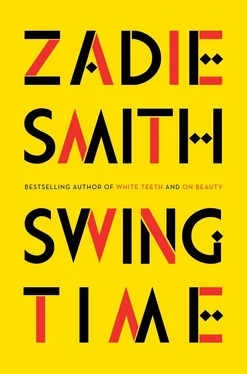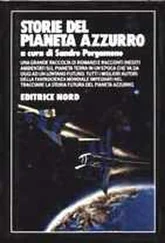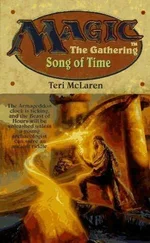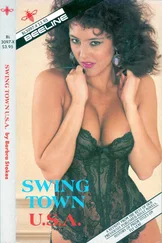But he was not lost: he took the set seven‒five, and Anwar took the broom away from the Congolese cleaner — whose name I did not know, whose name no one ever thought to ask — and made her dance with him, to some hi-life he had going on the transistor radio he carried everywhere. In the next set Shelton collapsed, one‒six. Bahram was exultant. Wherever you go in world, he told Anwar, you people at bottom! Sometimes at top White man, Jew, Arab, Chinese, Japan — depends. But your people always they lose. By the time the fourth set started we had stopped pretending to be a pizza place. The phone rang and no one answered, the oven was empty, and everybody was crammed into the small space at the front. I sat on the counter with Anwar, our nervous legs kicking the cheap MDF panels until they rattled. We watched these two players — in truth, almost perfectly matched — battling toward an elongated, excruciating tiebreak that Shelton then lost, six‒seven. Anwar burst into bitter tears.
“But Anwar, little friend: he have one more set,” explained the kindly Bosnian chef, and Anwar was as grateful as the man sitting in an electric chair who’s just spotted the governor through the Plexiglas, running down the hall. The final set was quick: six‒two. Game, set, match — Shelton. Anwar turned his radio up full blast and every kind of dance burst forth from me, winding, stomping, shuffling — I even did the shim-sham. Bahram accused us all of having sex with our mothers and stormed out. About an hour later he returned. It was the early-evening rush when mothers decide they can’t face cooking dinner and all-day tokers suddenly realize they haven’t eaten since breakfast. I was harried on the phone, trying as usual to parse many different kinds of pidgin English, both on the phones and among our own delivery crew, when Bahram walked up to me and put the evening paper in my face. He pointed to a picture of Shelton, his arm swung high in preparation for one of his forceful serves, ball in the air before him, paused at the moment of connection. I cupped the phone receiver with a hand.
“What? I’m working.”
“Look close. Not black. Brown. Like you.”
“I’m working.”
“Probably he is half-half, like you. So: this explains.”
I looked not at Shelton but at Bahram, very closely. He smiled.
“Half-winner,” he said.
I put the phone down, took my apron off and walked out.
• • •
I don’t know how Tracey found out I was back working at Bahram’s. I didn’t want anyone to know, I could hardly face the truth of it myself. Probably she simply spotted me through the glass. When she walked in, one steamy afternoon in late August, she caused a sensation, in her skin-tight leggings and navel-skimming crop top. I noticed her clothes had not changed with the times, that they had no need of change. She did not struggle, as I did — as most women I knew did — to find ways to dress her body in the symbols, shapes and signs of the age. It was as if she were above all of that, timeless. She was always dressed for a dance rehearsal and always looked wonderful that way. Anwar and the rest of the boys, waiting outside on their bikes, took a good long time over the front view and then repositioned themselves to get what Italians call the B-side. When she leaned over the counter to speak to me I saw one of them cover his eyes, as if in physical pain.
“Good to see you. How was the seaside?”
She smirked, confirming the sense I already had that my college life had been some kind of local joke, a poor attempt at playing a role outside of my range, one that had not come off.
“See your mum about. She’s everywhere these days.”
“Yes. I’m glad to be back, I think. You look great. Are you working?”
“Oh, I’m doing all sorts. Got big news. When do you get off?”
“I just started.”
“So what about tomorrow?”
Bahram sidled up to us and in his most courtly manner inquired whether Tracey happened to be Persian.
• • •
We met up the following evening, in a local pub that we had always known as Irish but which was now neither Irish nor anything else. The old booths had gone and been replaced by a great many sofas and wingback chairs, from different historical eras, covered in clashing prints, and scattered around the place, like a stage set recently dismantled. Purple flock wallpaper was plastered above the chimney breast and many poorly stuffed woodland creatures, arrested in the act of leaping or crouching, were encased in glass bell jars and had been placed on high shelves, looking over mine and Tracey’s reunion with their wonky glass eyes. I broke the gaze of a petrified squirrel to greet Tracey, who was returning from the bar with two white wines in her hands and a powerful look of disgust on her face.
“Seven quid? What fuckery is this?”
“We could go somewhere else.”
She screwed up her nose: “No. That’s what they want. We were born here. Drink slowly.”
We never could drink slowly. We kept going, on Tracey’s credit card, reminiscing and laughing — laughing harder than I had in all three years of college — taking each other back to Miss Isabel’s yellow shoes, to my mother’s clay pit, to The History of Dance , through all of it, even things I never thought we would ever be able to laugh at together. Louie dancing with Michael Jackson, my own Royal Ballet delusion. Feeling bold, I asked after her father.
She stopped laughing.
“Still over there. Got a whole bunch of ‘out the house’ children now, so I’m told…”
Her ever-expressive face turned pensive and then took on that look of utter icy coldness I remembered so well from childhood. I considered telling her about what I had seen, years before, in Kentish Town, but that coldness stopped up the sentence in my mouth.
“What about your old man? Haven’t seen him for time.”
“Believe it or not, I think he’s still in love with my mother.”
“That’s nice,” she said, but that look stayed on her face. She was staring past me, at the squirrel. “That’s nice,” she said once again.
I could see we had got to the end of reminiscence, that it was properly time to venture into the present day. I could guess how easily Tracey’s news would outstrip whatever I had to offer. And so it did: she had a part on the West End stage. It was in a revival of one of our favorite shows, Guys and Dolls , and she was playing “Hot Box Girl Number One,” which I remembered was not a huge role — in the film she had no name of her own and spoke only four or five lines — but all the same she was present a lot, singing and dancing in the Hot Box club, or else trailing Adelaide, whose best friend she’s meant to be. Tracey would get to do “Take Back Your Mink”—a song we did as children, brandishing a mangy-looking pair of feather boas — and she’d wear lace corsets and real satin gowns and have her hair set and curled. “We’re in proper dress rehearsal now. They use flat irons on me every night, it’s killing me.” She touched her hairline and underneath the wax that had been used to slick it down I saw that indeed it was already frayed and patchy.
She’d got her boast out of the way. In its aftermath, though, she struck me as vulnerable and defensive and I had the sense that I had not reacted quite as she’d wanted. Perhaps she had really imagined that a twenty-one-year-old college graduate would hear her good news and collapse weeping on the floor. She picked up her wine and drained it. She asked, at last, about my life. I took a deep breath and repeated the sorts of things I said to my mother: only a stopgap, waiting to hear of other opportunities, staying at my dad’s temporarily, rent being high, no relationship, but then relationships were so complicated, not what I needed right now, and I wanted time to work on my own—
Читать дальше












